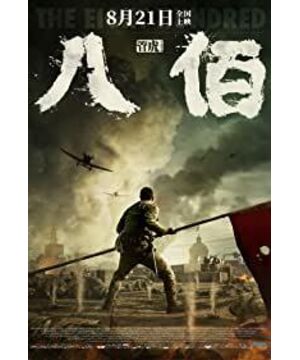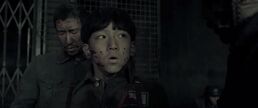From the point-to-point screening to the official screening, there are actually quite a lot of indiscriminate propaganda about Yaobai "black spots", although none of them can be beaten.
At least in my opinion, what makes some people particularly afraid of Yaobai recruiting hatred is not at all Sun Yuanliang, not the national army's resistance to Japan, nor the "historical inaccuracy" made up by people from all walks of life, but because this film is anti-Japanese Grand narrative, anti-ideology, anti-hero, anti-war. Even if it has been a finished film after retreating and compromising again and again, it can still be seen that what this movie wants to make is people. It is those who are labeled and simply classified as enemies and friends, good and bad, oneself and outsiders. So much so that the worst part of the film was the heroization that finally fell into a rut, especially the forced elevation of Xie Jinyuan. Even after this level of compromise now, it still fails to satisfy the political need that some people need to be able to take on the task of "education." How can you tolerate people thinking about it? Realizing that warriors are also human beings makes one wonder what dragged them from the fields from the masonry from the mother's side to the battlefield to die, and realizing that the enemy is also human makes it difficult to insert bullets and bayonets into each other's bodies. The laws of war in modern warfare, the hypocritical rules formulated at the negotiating table, can never avoid one thing: no matter what kind of noble spirit or high-sounding excuses they represent, when people are killed, they will die. Yaobai is not a work that successfully implements the creative concept. Too many restrictions determine that it cannot be great. Commercial considerations, review considerations, audience vision and acceptance considerations, so that it can be seen that it is deleted. Been compromising 13 minutes ago. Even so, it's all the more ironic that the power left behind after compromise and castration can make some people so fearful. *Add an "easter egg" that doesn't seem to appear in the end credits: When Xin Baiqing appeared in the Japanese army barracks invading China, the singing in the background was "Guo (ふるさと)" sung by the Ministry of Education, which was in Japanese elementary school textbooks at that time The song was also the most widely sung as a nostalgic song during the Pacific War. Why film the wicked enemies sorting out the bodies, the family members mourning the dead, and why the invaders are allowed to sing homesick songs? Reflecting on the destruction of human nature by war is not the "privilege" of the defeated.
View more about The Eight Hundred reviews











